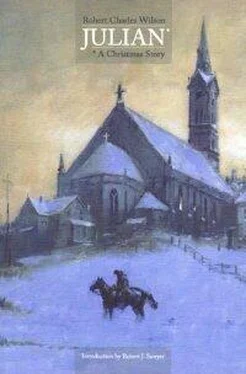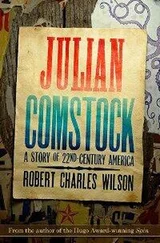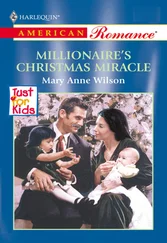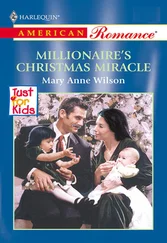This was the world I had been born into. It was an autumn like every autumn I could remember. But I could not help thinking of the Tip and its ghosts. Maybe those people, the people who had lived through the Efflorescence of Oil and the False Tribulation, had felt about their homes and neighborhoods as I felt about Williams Ford. They were ghosts to me, but they must have seemed real enough to themselves—must have been real; had not realized they were ghosts; and did that I mean I was also a ghost, a revenant to haunt some future generation?
Julian saw my expression and asked me what was the matter. I told him my thoughts.
“Now you’re thinking like a philosopher,” he said, grinning.
“No wonder they’re such a miserable brigade, then.”
“Unfair, Adam—you’ve never seen a philosopher in your life.” Julian believed in Philosophers and claimed to have met one or two.
“Well, I imagine they’re miserable, if they go around thinking of themselves as ghosts and such.”
“It’s the condition of all things,” Julian said. “This blackberry, for example.” He plucked one and held it in the pale palm of his hand. “Has it always looked like this?”
“Obviously not,” I said, impatiently.
“Once it was a tiny green bud of a thing, and before that it was part of the substance of the bramble, which before that was a seed inside a blackberry—”
“And round and round for all eternity.”
“But no, Adam, that’s the point. The bramble, and that tree over there, and the gourds in the field, and the crow circling over them—they’re all descended from ancestors that didn’t quite resemble them. A blackberry or a crow is a form , and forms change over time, the way clouds change shape as they travel across the sky.”
“Forms of what?”
“Of DNA,” Julian said earnestly. (The BIOLOGY he had picked out of the Tip was not the first BIOLOGY he had read.)
“Julian,” Sam warned, “I once promised this boy’s parents you wouldn’t corrupt him.” I said, “I’ve heard of DNA. It’s the life force of the secular ancients. And it’s a myth.”
“Like men walking on the moon?”
“Exactly.”
“And who’s your authority on this? Ben Kreel? The Dominion History of the Union ?”
“Nothing is changeless except DNA? That’s a peculiar argument even from you, Julian.”
“It would be, if I were making it. But DNA isn’t changeless. It struggles to remember itself, but it never remembers itself perfectly. Remembering a fish, it imagines a lizard. Remembering a horse, it imagines a hippopotamus. Remembering an ape, it imagines a man.”
“Julian!” Sam was insistent now. “That’s quite enough.”
“You sound like a Darwinist,” I said.
“Yes,” Julian admitted, smiling in spite of his unorthodoxy, the autumn sun turning his face the color of penny copper. “I suppose I do.”
* * *
That night, I lay in bed until I was reasonably certain both my parents were asleep. Then I rose, lit a lamp, and took the new (or rather, very old) HISTORY OF MANKIND IN SPACE from where I had hidden it behind my oaken dresser.
I leafed through the brittle pages. I didn’t read the book. I would read it, but tonight I was too weary to pay close attention, and in any case I wanted to savor the words (lies and fictions though they might be), not rush through them. Tonight I wanted only to sample the book; in other words, to look at the pictures.
There were dozens of photographs, and each one captured my attention with fresh marvels and implausibilities. One of them showed—or purported to show—men standing on the surface of the moon, just as Julian had described.
The men in the picture were evidently Americans. They wore flags stitched to the shoulders of their moon clothing, an archaic version of our own flag, with something less than the customary sixty stars. Their clothing was white and ridiculously bulky, like the winter clothes of the Inuit, and they wore helmets with golden visors that disguised their faces. I supposed it must be very cold on the moon, if explorers required such cumbersome protection. They must have arrived in winter. However, there was no ice or snow in the neighborhood. The moon seemed to be little more than a desert, dry as a stick and dusty as a Tipman’s wardrobe.
I cannot say how long I stared at this picture, puzzling over it. It might have been an hour or more. Nor can I accurately describe how it made me feel… larger than myself, but lonely, as if I had grown as tall as the stars and lost sight of everything familiar. By the time I closed the book the moon had risen outside my window—the real moon, I mean; a harvest moon, fat and orange, half-hidden behind drifting, evolving clouds.
I found myself wondering whether it was truly possible that men had visited that celestial body. Whether, as the pictures implied, they had ridden there on rockets, rockets a thousand times larger than the familiar Independence Day fireworks. But if men had visited the moon, why hadn’t they stayed there?
Was it so inhospitable a place that no one wished to remain?
Or perhaps they had stayed, and were living there still. If the moon was such a cold place, I reasoned, people residing on its surface would be forced to build fires to keep warm. There seemed to be no wood on the moon, judging by the photographs, so they must have resorted to coal or peat. I went to the window and examined the moon minutely for any sign of campfires, pit mining, or other lunar industry. But I could see none. It was only the moon, mottled and changeless. I blushed at my own gullibility, replaced the book in its hiding place, chased these heresies from my mind with a prayer (or a hasty facsimile of one), and eventually fell asleep.
It falls to me to explain something of Williams Ford, and my family’s place in it—and Julian’s—before I describe the threat Sam Godwin feared, which materialized in our village not long before Christmas. [3] I beg the reader’s patience if I detail matters that seem well-known. I indulge the possibility of a foreign audience, or a posterity to whom our present arrangements are not self-evident.
Situated at the head of the valley was the font of our prosperity, the Duncan and Crowley Estate. It was a country estate (obviously, since we were in Athabaska, far from the eastern seats of power), owned by two influential New York mercantile families, who maintained their villa not only as a source of income but as a kind of resort, safely distant (several days’ journey by train) from the intrigues and pestilences of city life. It was inhabited—ruled, I might say—not only by the Duncan and Crowley patriarchs but by a whole legion of cousins, nephews, relations by marriage, high-born friends, and distinguished guests in search of clean air and rural views. Our corner of Athabaska was blessed with a benign climate and pleasant scenery, according to the season, and these things attract idle aristos the way strong butter attracts flies.
It remains unrecorded whether the town existed before the Estate or vice versa; but certainly the town depended on the Estate for its prosperity. In Williams Ford there were essentially three classes: the Owners, or aristos; below them the leasing class, who worked as smiths, carpenters, coopers, overseers, gardeners, beekeepers, etc., and whose leases were repaid in service; and finally the indentured laborers, who worked as field hands, inhabited rude shacks along the west bank of the Pine, and received no compensation beyond bad food and worse lodging.
My family occupied an ambivalent place in this hierarchy. My mother was a seamstress. She worked at the Estate as had her parents before her. My father, however, had arrived in Williams Ford as a transient, and his marriage to my mother had been controversial. He had “married a lease,” as the saying has it, and had been taken on as a stable hand at the Estate in lieu of a dowry. The law allowed such unions, but popular opinion frowned on it. We had few friends of our own class, my mother’s blood relations had since died (perhaps of embarrassment), and as a child I was often mocked and derided for my father’s low origins.
Читать дальше












